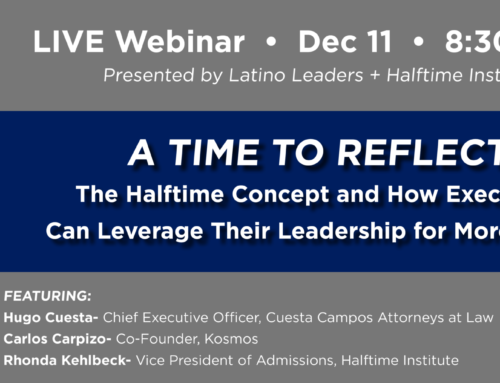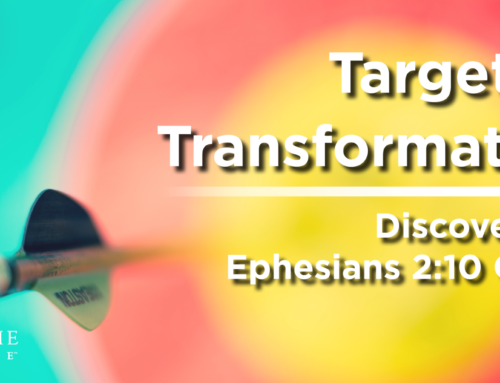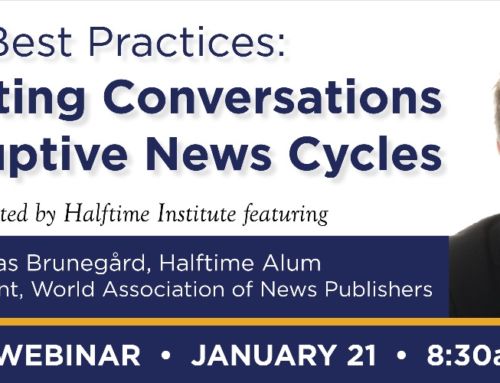“I feel trapped. And you know I can’t talk to anyone else about this, Rod” he said to me. “I can’t afford to show weakness. It could cost too much with the people I’m leading.”
I had just wrapped up a coaching session with a client talking about the frenzied pace of his life, the burden of responsibilities, and how he felt trapped, like everyone wanted something from him. Can you relate?
So many leaders I coach these days come to me because they find themselves leading lives of quiet desperation.
Maybe you can have felt this way…
Are you tired of always feeling behind? You are burning the candle at both ends, but there’s never enough time.
It feels like running on a hamster wheel. But… for all your going, you have an empty feeling.
Under the surface, you feel like you just want to escape.
You know you need a change. But how? And where to start? You’re so used to running on adrenaline.
You want peace. You want rest. And you want to devote yourself to something that truly matters.
You’re not alone. I see it in many of the leaders I work with as a Halftime Coach, and it was true of my own story before I went through a halftime season.
I didn’t have the time or emotional bandwidth to slow down long enough to understand what was going on inside. I had no passion for anything except escape.
A few years before I left corporate life, I began working with a Halftime Coach. He wisely warned me that I should anticipate a detox process as I transitioned from my 34-year, intense career. There were some heart issues that I could not see at the time. I knew I needed a change, but I didn’t know where to start.
Perhaps you relate? I want to encourage you to explore these even before they are visible to you.
Here are 4 common issues to detox from and my personal experience with each:
-
Being Driven vs Being Called:
I was joyless, anxious and driven. My wife told me that I was putting too much into my career. I didn’t believe it until she recounted my life over the past few years – 100+ days of travel each year, leading a large business group, overseeing our division in Japan, 5:00am meetings, weekend work, serving on the elder board in my church. I could not see what was driving me. I began to ask myself ‘Why do I work so hard, sacrifice so much and enjoy it so little?’ This inner drive controlled me, but success did not satisfy it. Rather, it left me drained and empty inside.
-
A Lack of Joy and Passion:
I distinctly remember winning a big account and feeling nothing. No up, no down, just dead. I would walk in nature (where I used to feel euphoria at God’s beauty), but I felt nothing. I just felt like I needed to escape, but I didn’t have the time or emotional bandwidth to slow down long enough to understand what was going on inside.
-
Addiction to Performance:
When I first came through a Halftime program, I was excited about the prospect of doing something “big” for God. I thought God needed me, but I am discovering that instead he wants my heart and an intimacy that I didn’t think was possible. Competing and winning can be a good thing, but it was robbing me of inner peace and joy, knowing that God loves me just for being me. I had an identity problem.
-
A Breakneck Pace; Putting My Health At Risk:
Stress caught up with me. I never really let down for 10 years. I knew deep down inside, that it was slowly harming my physical health. I experienced repeated bouts of flu-like symptoms and depression that were triggered by stressful events. I was living on adrenaline and didn’t know how to stop. It was fun for a while until it wasn’t.
I had to re-calibrate my understanding and my life’s scorecard and align my daily, weekly and annual habits accordingly. What I could not see while head down in my career was what was driving my success: my addiction to performance based on my distorted view of God.
At the Halftime Institute, we work on both the head and the heart. We help you make a game plan for the next season, but so much of the preparation for what is ahead happens on the heart level.
The secret sauce of true transformation happens in the coaching relationship. Your business won’t help you detox. They benefit from your rampant pace and productivity. Your church may not have the expertise or resources to help hard-charging business people like you pause, reflect, and transition meaningfully. The change happens when you can reflect in a completely confidential one-on-one setting, think your confusion out loud, and lay out the building blocks for both internal and external change.
We’ve helped thousands of leaders make this transition, and we are here for you. If you’d like to explore this detox and transition process further, contact our Admissions Team.
Wishing you a second half marked by peace, rest, fulfillment, and impact.






